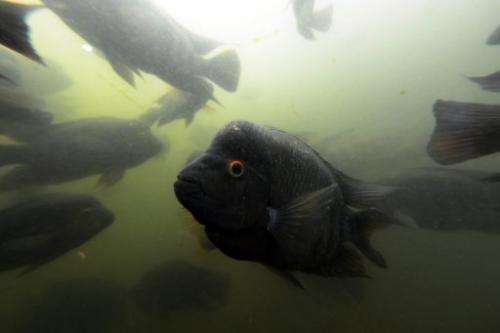D-Day for crunch biodiversity talks (Update)

Negotiators sought Friday to persuade wealthy nations to bankroll ambitious targets for stemming the loss of Earth's dwindling natural resources.
Just days after 400 plants and animals were added to a "Red List" of species at risk of extinction, ministers from more than 80 countries are set to conclude biodiversity talks in the southern Indian city of Hyderabad.
UN countries agreed at a conference in Japan in 2010 to reverse by 2020 the worrying decline in natural resources that humans depend on for food, shelter and livelihoods.
But the 20-point plan has been hamstrung by a lack of money for conservation efforts such as creating nature reserves or funding research at a time of global financial austerity.
Delegates told AFP that the talks continued late into Thursday night, with the scale and timing of financing still a sticking point.
"It's looking a little lacklustre," green group WWF said of the version of a draft deal on the table by Friday morning, without going into detail.
According to the conference programme, a three-hour plenary session is scheduled to start at 0930 GMT for the adoption of a final report.
"I won't say there is a deadlock in the discussions," said Joe Hennon, spokesman for the European Commission's environment commissioner Janez Potocnik.
"The discussions are still going on, they are by no means finished," he told AFP with just hours to go to the deadline.
Some negotiators want to see rich countries agree in Hyderabad to doubling their biodiversity assistance to the developing world by 2015.
In return, a draft negotiating document insists that 75 percent of developing countries must have included biodiversity as a national development priority by 2015.
One of the key holdups in the negotiations, said delegates, was that countries like Canada were loath to commit more money given that most recipients have failed to file reports evaluating their biodiversity spending and needs.
"In the difficult economic circumstances in Europe, it's unlikely that we'll have a big financial deal," WWF conservation expert Lasse Gustavsson said Thursday.
And British Environment Minister Richard Benyon said that London was happy to contribute but wanted to be sure "that we are not leaving ourselves open to putting greater burden on our taxpayers".
Held under the auspices of the UN Convention on Biological Diversity (CBD), the Hyderabad meeting is meant to come up with tangible ways to execute what have become known as the Aichi Biodiversity Targets.
They include halving the rate of habitat loss, expanding water and land areas under conservation, preventing the extinction of species on the threatened list, and restoring at least 15 percent of degraded ecosystems.
A quarter of the world's mammals, 13 percent of birds, 41 percent of amphibians and 33 percent of reef-building corals are at risk of extinction, according to the International Union for Conservation of Nature's "Red List", updated on Wednesday.
Estimates vary, but experts say hundreds of billions of dollars will be required to achieve the targets set in Japan.
The money agreed on Friday should be spent on improving and expanding conservation areas, training and scientific research.
It could also help poor countries cut subsidies for practices that harm the environment, such as overfishing, replacing these with grants that support green projects instead.
The ministerial section of the talks, which opened on Wednesday, comes at the tail-end of two weeks of tough negotiations by senior bureaucrats from 184 CBD parties.
The convention, to which 193 countries are signatories, marks its 20th anniversary this year.
It has already missed one key deadline when it failed to meet the target set to halt biodiversity loss by 2010.
(c) 2012 AFP



















